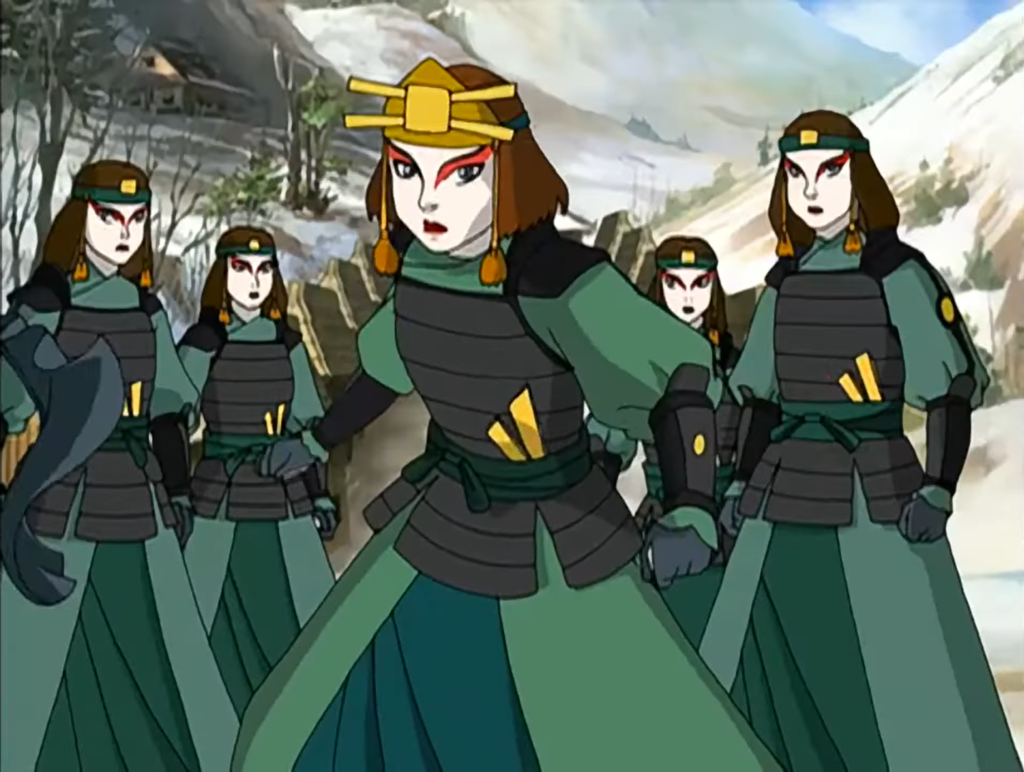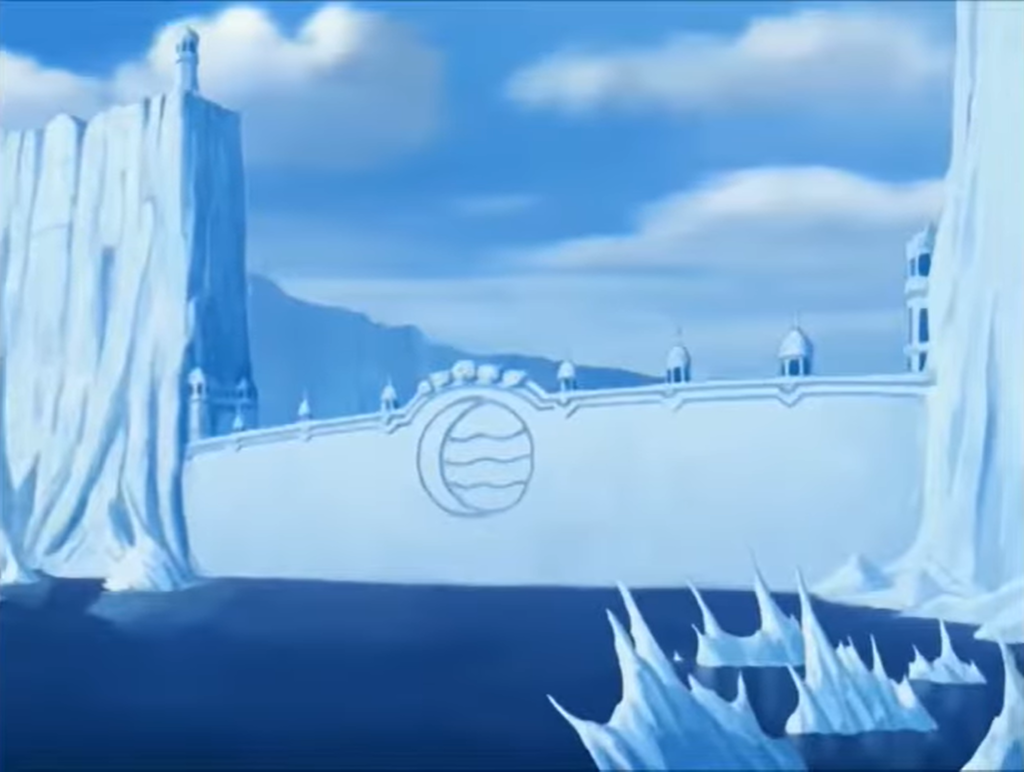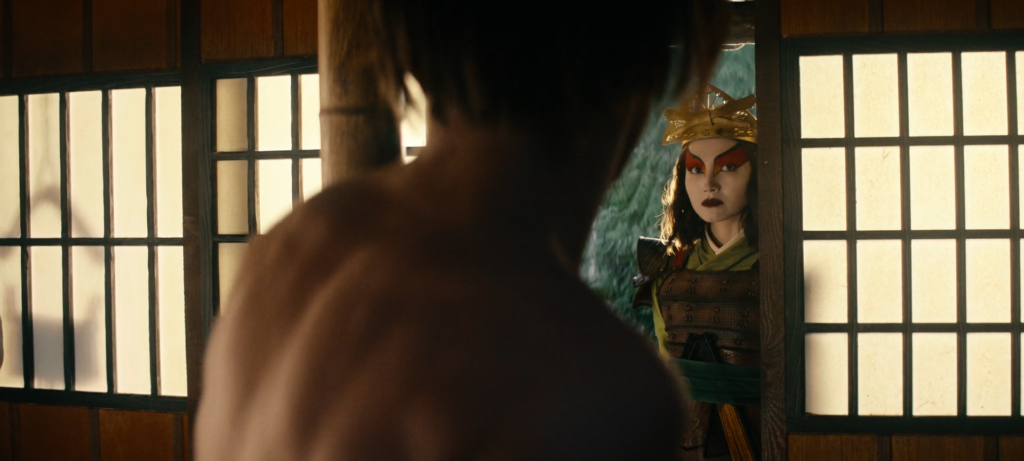Before the live action Avatar series came out, Kiawentiio (Katara) and Ian Ousley (Sokka) commented in an interview that Sokka’s sexism wouldn’t be present in the series. They said that moments were he made sexist comments were ‘iffy’ and wouldn’t work in the live action reimagining.
As a huge fan of the original animated show (aren’t we all?), this comment struck me as odd. I remember Sokka and some other characters making some sexist comments, but they were always called out on it and, Sokka in particular, were allowed to grow into better characters for it.
Having seen the first few episodes of the series, I am confident in saying that this aspect of Sokka’s character needed to stay. Not because I’m “anti-woke” or anything like that. But because the show uses Sokka’s sexism to highlight a lot of the lessons his character learns, and are ultimately important to the entire theme of the show.
Flaws and Arcs
Sokka is sexist near the beginning of the show. This is obviously meant as a character flaw by the writers. They constantly show how Sokka is wrong about these ideas, and whenever there is a joke about sexism, he’s usually the butt of the joke because of this flaw in his character.
It’s writing 101 to say this, and you may know all this stuff already, but giving characters a flaw is precisely what makes them interesting. Aang runs away from his responsibilities. Korra lacks confidence in her abilities. Zuko is obsessed with winning back the respect of a father that doesn’t love him.
Of course, those descriptions don’t hold true for these characters by the end of the original show. That is because they have gone through “arcs”, which means these characters have grown beyond those flaws and become better for it. Again, very simple, writing 101, but it seems the live action show might have missed this.
So Sokka is sexist. He makes comments about how women should be fixing trousers, and can’t be warriors. And like the rest of the Gaang, Sokka goes through one of these arc-things and becomes a better person by the end of the show.
Warrior Women
Sokka’s first major humiliation comes in the fourth episode of the Book One. In this episode, Kyoshi Warriors, the Gaang meets a group of female warriors that model themselves after Avatar Kyoshi, a previous (female) Earth Avatar.

Sokka’s initial reaction is, no way of sugarcoating it, sexist. He doesn’t view them as warriors, since women aren’t as strong as men. It’s the man’s role to protect, a role he took over from his father after all the men left for war. As the oldest man, he had to become the warrior, the protector since, in his eyes, women are not meant for that role.
This leads to the Kyoshi Warriors humiliating Sokka when he tries to demonstrate his skills after watching them “dance”. It’s a fun scene, one where the sexist is taught a lesson.
Humility
Sokka is sexist. But he’s also one of our heroes. He’s a good person. And the show demonstrates this by showing his reaction to humiliation. He doesn’t get angry. He doesn’t double down. He learns from it. He understands that he is wrong and that he can become better.
He returns to the Kyoshi Warriors’ dojo, drops to his knees, apologises and begs them to train him. By admitting he is wrong, and showing humility, he is allowed to learn the ways of the Kyoshi Warriors. Including the wearing of their traditional warrior dress.

It’s a powerful moment, and probably the most important Sokka moment in the entire show. The humility he learns here pays off in Book 3. When Sokka approaches Piandao to ask for training in the art of the sword, he is told he will need to prove his worth. The old Sokka would have joked and invented many reasons as to why he is worthy. He may have even said it’s his duty as the eldest man in his tribe.
This new, humble Sokka, doesn’t do this. Instead, he drops to his knees just like he did before the Kyoshi Warriors, and admits that he doesn’t know if he is worthy. This humility is enough to impress Piandao. “Let’s find out together how worthy you are”, he says, and Sokka’s sword training begins.

Cultural Biases
Sokka’s sexism is part of a much greater theme. One that encompasses the entire story as a whole. When the Gaang first gets to the North Pole, they meet Pakku, a waterbending master. He informs them that only men may learn the ways of a warrior, and women should instead focus on healing. This is a glaring sign with blinking neon lights telling us where Sokka’s sexism comes from.

If the Northern Water Tribe has sexist traditions, then it’s likely the Southern Water Tribe does as well. This is backed up by the fact that it was the men that left to fight in the war against the Fire Nation, leaving the women behind. Including the tribe’s only waterbender.
Sokka isn’t sexist because he’s a bad person. He’s sexist because that’s how he was raised, how everyone around him was raised. And what Sokka shows us by overcoming his sexism is that we can all do it to.
Everyone is raised with cultural biases of one kind or another. It’s important that we are aware of this, and that we are also aware that we don’t have to accept them. If they are wrong, or doing harm, we can challenge them. We can become better people.
Relationships
Sokka’s got a reputation as a womaniser, despite his sexist outlook. But it’s interesting to note why the women in Avatar fall for Sokka. In particular, Suki. I don’t think Suki would have given Sokka the time of day initially. She is abrasive and mocking toward him, up until that one important moment. The moment he admits fault and asks to be trained.
It’s headcanon, but I think that is the moment that Suki started to fall for Sokka. She stops seeing a sexist man, and sees a flawed man that is willing to change and grow. After this moment she still taunts him, but it becomes more light-hearted and playful. We can see what Suki sees in Sokka from their interactions.
In the live action adaptation she seems to warm to him straight away. The only implied reason is that Sokka is really hot. Either that, or there aren’t many men on their island. The chemistry and romance isn’t really there.

It also affects his relationship with his sister. Initially he is protective of her. He’s the man of the house now, and she’s all he has left. They fight and bicker, like brother and sister are wont to do, but he is always out to protect her.
Later he understands that she can be a great warrior. He doesn’t lose his protective nature, but he understands that he can trust others to protect themselves as well. He learns to respect Katara, Toph, Suki, and others as warriors, and accepts that it’s okay if they can be more powerful than him.
Literally the Whole Point
Eventually Katara is able to convince Pakku to train her by almost defeating him in combat. He learns after the fight that Katara’s grandmother ran away from their arranged marriage, Katara points out that she wasn’t going to let the tribe’s “stupid customs” ruin her life. On hearing this, Pakku realises that he is wrong to stick to rigorous traditions and agrees to train Katara alongside Aang.

Avatar: The Last Airbender is about one nation invading the others. Initially we are shown a nation of evil soldiers, a nation that wiped out the airbenders and terrorises the other nations. It is all we are shown. By the time we get to Book 3 and are in the Fire Nation, and we can see the other side of it. We see that the nation is redeemable, that there are innocent and good people there as well. The Gaang’s goal shifts from defeating the Fire Nation, to saving all nations, including Fire.
The show is about destroying our prejudices, our preconceived notions, our biases, and learning to move beyond them The Avatar is meant to bring balance to all, not all-but-one. I could talk more at length about how this theme is constantly touched upon throughout the show, but I’d never be able to stop writing if I did.
Sokka’s sexism an important part of the show that comes under this entire umbrella. It shows us that sexism is another one of these prejudices and cultural biases that we should overcome. That we can overcome. Because, like the Avatar, we are meant to bring balance-to-all.




